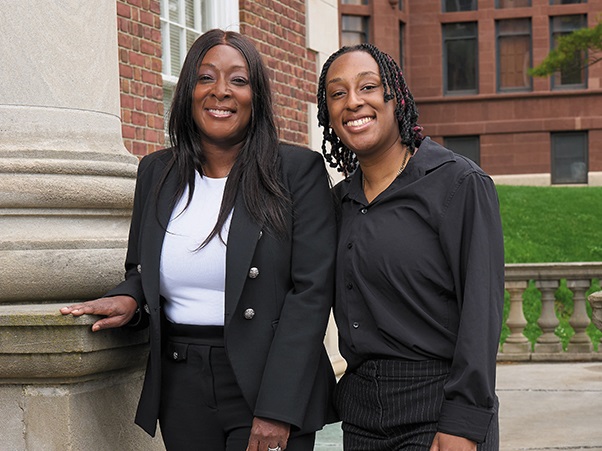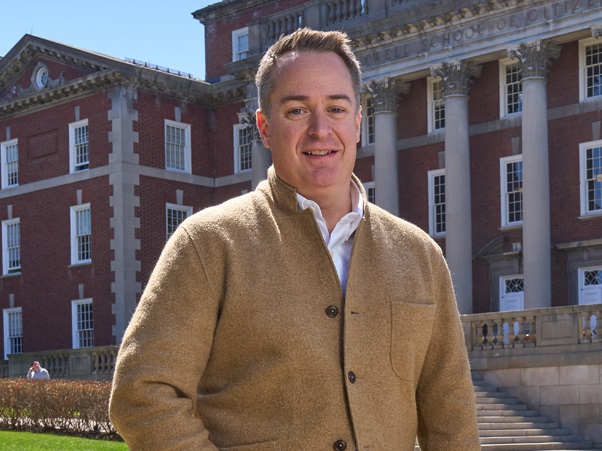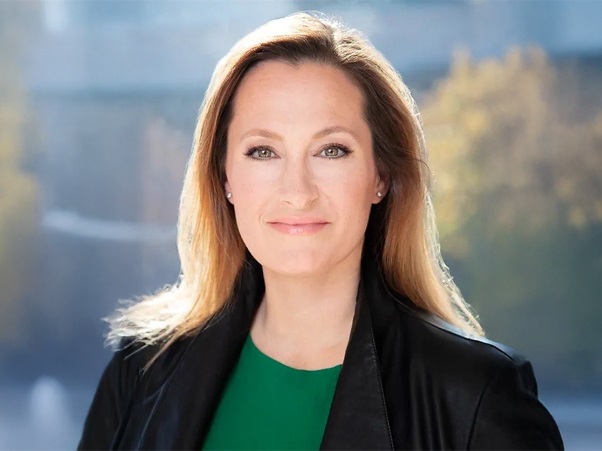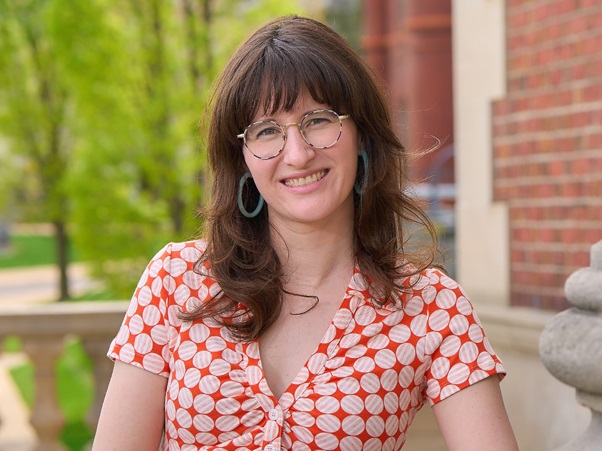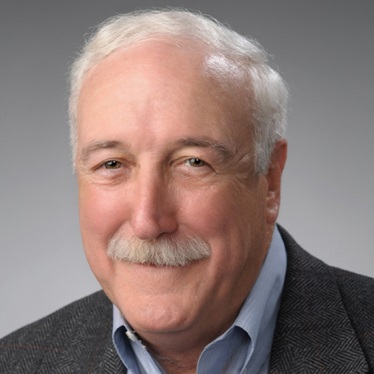Alumnus Paulo De Miranda: Maxwell Offered ‘Much More Than a Formal Education’
June 12, 2025
He co-founded the Brazilian startup DEEP and grew it into a market leader in sustainability impact measurement.
Early in his career, Paulo De Miranda embarked on several humanitarian aid and peacekeeping assignments around the world.
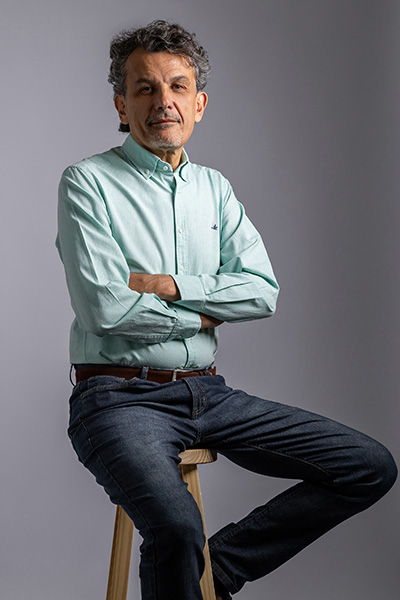
“When we concluded our tasks, we wrote reports about our field work, but many times felt that little insight was given to understand the real dimension of the impact we could produce over a given time,” says De Miranda, who earned an M.A. (PA) in 2000. “This was very frustrating for me.”
The frustration evolved into a fascination with how to examine and measure impact associated with capital deployment. De Miranda saw a need for organizations and government entities to obtain useful data beyond the standard financial analysis.
Five years ago, he and a friend co-founded a start up in their home country, Brazil, that seeks to fill that gap while supporting sustainability efforts across sectors. DEEP measures carbon emissions, climate risks, water footprints and other impacts for roughly 400 organizations and businesses. The company also provides training, sustainability dashboards and data management tools.
In that short time, demand for DEEP’s services has grown exponentially amid increasing government regulations and reporting requirements related to the environment, says De Miranda.
The company has raised over $5 million in investor support and formalized strategic partnerships with Brazil’s largest technology and energy companies, TOTVS and VIBRA, respectively. What’s more: DEEP has grown to more than 100 employees since its launch.
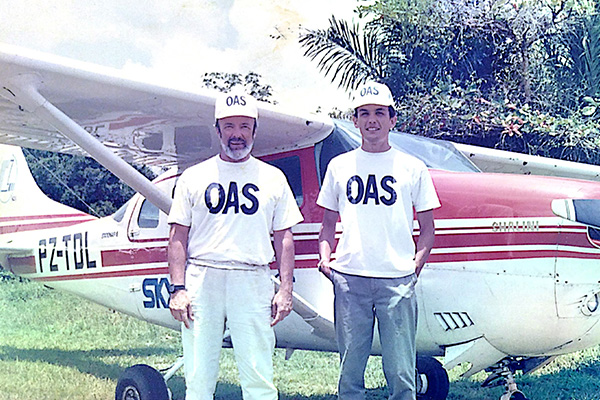
To honor his success and innovation, De Miranda was named the 2024 alumni entrepreneur of the year, the top recognition at Syracuse University’s annual ’CUSE50 celebration, which recognizes the 50 fastest-growing businesses owned or led by Syracuse alumni.
De Miranda was among seven Maxwell School entrepreneurs recognized at the event.
“My time at Maxwell played a foundational role in shaping my outlook,” says De Miranda. “It is where I first began to see public policy, economic development and international relations not as separate domains, but through the lens of my own background and how they function interdependently. Maxwell nurtured in me a systemic lens—helping me understand that leadership in the public interest requires more than analytical rigor and imaginative reach.”
The interdisciplinary environment “encouraged me to ask questions beyond conventional models and design my own set of interventions in and outside classrooms,” he says. “I have carried this into almost every initiative I have been involved with.”
De Miranda left Brazil to study English in the U.S. at age 19. While an undergraduate at the University of Maryland, he began working with the Washington, D.C.-based Organization of American States.
By the time he came to Maxwell, De Miranda had amassed international experiences that could have been used as the focus of classroom discussions about NGOs, diplomacy, democracy and more.
For instance, had he not experienced a flight delay, he would have been kidnapped alongside his team of international election observers, who were held hostage for 30 days by National Liberation Army guerillas near Medellin, Colombia in 1997.
He also met President Jimmy Carter in 1990 while working in Nicaragua as field coordinator for another group of international observers. “President Carter’s delegation came to our office for a local inspection visit, and we were able to receive him for a lunch,” says De Miranda. “We spent about four hours together.”
At Maxwell, De Miranda became interested in the intersection of technology and policy—a research focus of one of his most influential instructors, Terrell A. Northrup, associate teaching professor emerita of international relations. He also studied with University Professor Sean O’Keefe, who at the time was a professor of practice, former comptroller for the U.S. Department of Defense and secretary of the Navy. “He brought a very practical approach and sense of reality to technology and science policy in the business world,” says De Miranda.
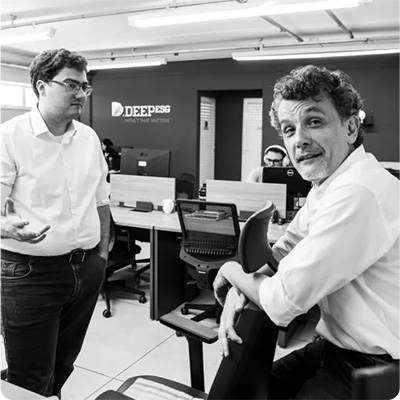
Melvyn Levitsky, then a professor of practice at Maxwell, offered a wealth of lessons from his professional experience. He also shared a special connection to De Miranda, as he served as a U.S. ambassador to Brazil from 1994–98.
De Miranda’s various roles since Maxwell include serving as a project director for the International Finance Corporation, an arm of the World Bank Group. He also worked with the International Association of Science Parks in Spain.
In 2018 he told his wife, Fabiana, that he wanted to work for himself and to focus on what had long fascinated him—using technology to “tell organizations what their impact is and will be for many years to come.”
While volunteering for his children’s school, he partnered with a member of its staff, engineer Arthur Covatti, on an impact report. When it was completed, they realized their work together wasn’t finished. “We decided to think through a process that we could turn into a product and eventually into a company,” says De Miranda.
Today, DEEP is a market leader in the areas of impact measurement and ESG, an acronym for environment, social and governance. This past fall, De Miranda stepped back from his daily role with the company to serve as an advisor and chair its board of directors.
“My experiences at Maxwell helped me refine and deepen my understanding of why impact matters and gave me confidence to pursue my goals,” he says.
By Jessica Youngman
RELATED STORY: Read about fellow CUSE50 honoree Ron Balchandani ’16 B.S. (Econ)
Published in the Spring 2025 issue of the Maxwell Perspective
Well-Represented
In addition to Paulo De Miranda, six Maxwell alumni were recognized with CUSE50 awards: Ron Balchandani ’16 B.S. (Econ), chairman and chief executive officer of the investment firm AV Equity Partners; George S. Farag ’02 M.A. (IR)/’02 M.A. (PA)/’07 Ph.D. (Anth), founder and lead consultant for immigrant and non-immigrant visa operations, Silverline Strategies; Seth D. Racine ’06 M.P.A., co-founder and chief executive officer, Open Architects; Melanie M. Vernoia ’14 B.A. (IR), co-founder and vice president of account brands partnerships, Stacker; Thomas H. Wicky ’93 B.A. (Econ), co-founder and chief executive officer, MyFBAPrep; and Bryan F. Rafanelli ’84 B.A. (PSc), founder and chief creative officer, Rafanelli Events.
Related News
School News
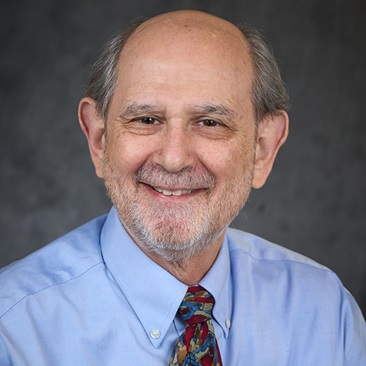
Jul 14, 2025
School News
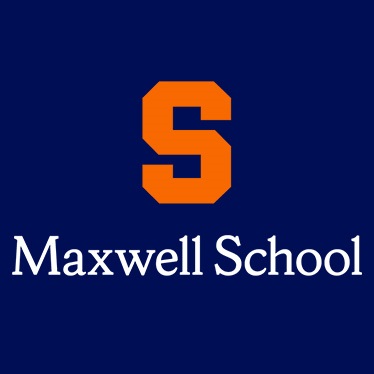
Jul 11, 2025
School News
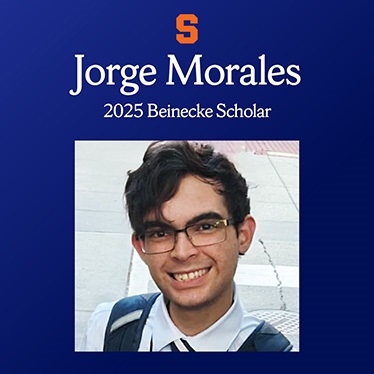
Jul 3, 2025
